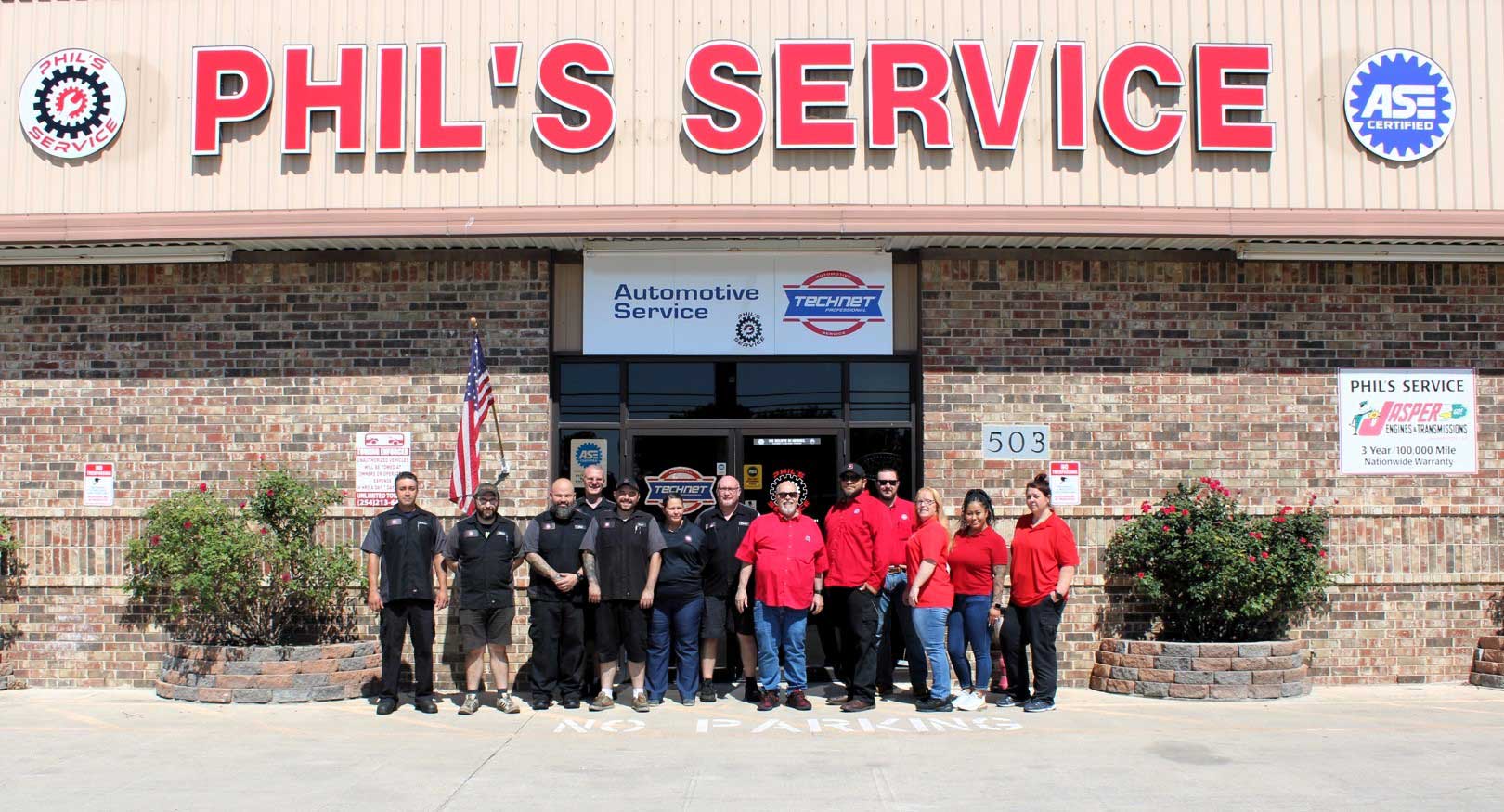Your car suddenly seems a tad sluggish. The roar of the engine doesn't match the speed. You press the accelerator, but the transmission doesn't budge.
It's a driver's nightmare - when the transmission won't shift when accelerating. But what's behind this baffling car behavior?
Buckle up as we delve deep into car transmissions and decode why your vehicle sometimes won't cooperate.
Understanding Car Transmissions: The Basics
The transmission is akin to its spine for any vehicle. That's whether it's the massive truck you drive for work or the compact car you use for groceries. It ensures your vehicle moves smoothly, shifting gears and allowing you to accelerate when needed.
Think of it as the bridge between the engine and the wheels. The transmission dictates how fast or slow the wheels turn.
For regular car maintenance, giving attention to the transmission is paramount. Ignore it; soon, your vehicle may show signs of transmission slipping or, worse, transmission failing.
Why My Transmission Won't Shift When Accelerating: Common Causes
When your vehicle struggles to change gears during acceleration, it's often signaling a problem in the transmission system. Addressing these issues can prevent pricey repairs and ensure a smoother driving experience.
So, let's look at these issues further:
Low Transmission Fluid
The lifeblood of the car's transmission system is the transmission fluid. It doesn't just act as a lubricant but plays a pivotal role in ensuring that gears shift and interact. Much like our bodies require adequate blood, your car's transmission needs the correct fluid level to operate optimally.
When this fluid gets low due to leaks or prolonged use, you can compromise the transmission's ability to shift. You may find your vehicle hesitating or refusing to go when accelerating.
Worn Out Clutch
The clutch is an integral component in vehicles equipped with a manual transmission. It's the mediator between the engine and the transmission. Plus, it ensures they work in harmony.
Like most car parts, the clutch isn't immune to wear and tear. Over time, it can become worn out or misaligned after many cycles of engaging and disengaging.
An aged or misaligned clutch won't engage properly. It may resist the shift in gears. This is noticeable when attempting to accelerate.
It's like trying to run with shoes that don't fit; you simply can't move as you should.
Faulty Transmission Solenoids
Solenoids might sound complex. But think of them as traffic officers for your transmission fluid. These electrical components regulate fluid flow in and out of the transmission's various parts.
When they're in good shape, everything flows. But, like a malfunctioning traffic light can cause chaos at an intersection, faulty solenoids can disrupt the fluid's flow. This disruption often leads to improper shifting or an outright refusal to shift.
Worn Out Gear Synchros
Gear synchros are manual transmissions of what rhythm is to music. They ensure that gear transitions occur smoothly and at the right time. These components minimize the jarring or grinding that would arise if gears clash.
But, as with any component that sees regular use, gear synchros can wear out. When this happens, the harmony is disrupted. Gear shifting may not only become rough but there might also be a noticeable delay when attempting to accelerate.
Transmission Slipping
Imagine you're on a conveyor belt that suddenly changes speed without warning. That's how transmission slipping feels.
You're driving at a consistent pace, and out of nowhere, your car feels like it's shifted to a different gear. It's a clear indication that something's amiss in the transmission.
This can be caused by many reasons, from worn-out bands that link gears to issues with the computer system that controls automatic shifting. It's a symptom that shouts - your transmission needs attention!
Understanding these causes can make the difference between a minor fix and a major repair.
Symptoms of a Failing Transmission
Your car's transmission is a complex system that ensures the right power goes to your wheels at the right time. It will send out a series of warning signs when it starts to fail.
Beyond the noticeable problem of the transmission not shifting when accelerating, several other symptoms can point toward a deteriorating transmission:
Unusual Noises
A healthy car operates quietly. If you hear odd sounds like clunking, whining, or humming, especially when the vehicle is in neutral, it may indicate a problem with the transmission. These noises can signify wear and tear on the transmission's components.
Delayed or No Response
When you switch gears, your vehicle should respond immediately. A noticeable delay or a complete lack of response when shifting from park to drive or vice versa signifies potential transmission troubles.
Grinding or Shaking
A car is supposed to offer a smooth driving experience. If you notice the vehicle grinding during gear changes or an unexplained shake or jerk, it might be an issue with the transmission.
This grinding can be especially prominent in manual transmissions. While in automatics, it might feel more like an abrupt gear shift.
Burning Odor
The transmission operates under high stress and heat. It relies on transmission fluid to keep it cool and lubricated.
If the fluid becomes old or runs low, it can cause the transmission to overheat. A burning smell indicates this and suggests the transmission fluid needs checking or replacing.
Preventing Transmission Troubles
The best approach to car problems is prevention. Regular car or truck maintenance, maintaining optimal fluid levels, and timely replacements of parts like the clutch or solenoids can keep your vehicle running. Prompt action can save you time and money if your truck or car exhibits any early signs of transmission trouble.
What's Your Next Step?
Your vehicle is a marvel of engineering, and its transmission is critical to ensuring a smooth journey. Understanding what's under the hood can equip you to tackle issues head-on. Plus, it ensures your vehicle's safety and longevity.
Car acceleration problems are not to be ignored.
If you've noticed your transmission won't shift when accelerating or any other car problems, don't wait. The next step is to consult with experts who can guide you.
Contact Phil's Service in Killeen, TX, for expert assistance and get back on the road!
If you've noticed your transmission won't shift when accelerating, don't wait. call our ASE Certified technicians for more information about Transmission service.
Your car suddenly seems a tad sluggish. The roar of the engine doesn't match the speed. You press the accelerator, but the transmission doesn't budge.
It's a driver's nightmare - when the transmission won't shift when accelerating. But what's behind this baffling car behavior?
Buckle up as we delve deep into car transmissions and decode why your vehicle sometimes won't cooperate.
Understanding Car Transmissions: The Basics
The transmission is akin to its spine for any vehicle. That's whether it's the massive truck you drive for work or the compact car you use for groceries. It ensures your vehicle moves smoothly, shifting gears and allowing you to accelerate when needed.
Think of it as the bridge between the engine and the wheels. The transmission dictates how fast or slow the wheels turn.
For regular car maintenance, giving attention to the transmission is paramount. Ignore it; soon, your vehicle may show signs of transmission slipping or, worse, transmission failing.
Why My Transmission Won't Shift When Accelerating: Common Causes
When your vehicle struggles to change gears during acceleration, it's often signaling a problem in the transmission system. Addressing these issues can prevent pricey repairs and ensure a smoother driving experience.
So, let's look at these issues further:
Low Transmission Fluid
The lifeblood of the car's transmission system is the transmission fluid. It doesn't just act as a lubricant but plays a pivotal role in ensuring that gears shift and interact. Much like our bodies require adequate blood, your car's transmission needs the correct fluid level to operate optimally.
When this fluid gets low due to leaks or prolonged use, you can compromise the transmission's ability to shift. You may find your vehicle hesitating or refusing to go when accelerating.
Worn Out Clutch
The clutch is an integral component in vehicles equipped with a manual transmission. It's the mediator between the engine and the transmission. Plus, it ensures they work in harmony.
Like most car parts, the clutch isn't immune to wear and tear. Over time, it can become worn out or misaligned after many cycles of engaging and disengaging.
An aged or misaligned clutch won't engage properly. It may resist the shift in gears. This is noticeable when attempting to accelerate.
It's like trying to run with shoes that don't fit; you simply can't move as you should.
Faulty Transmission Solenoids
Solenoids might sound complex. But think of them as traffic officers for your transmission fluid. These electrical components regulate fluid flow in and out of the transmission's various parts.
When they're in good shape, everything flows. But, like a malfunctioning traffic light can cause chaos at an intersection, faulty solenoids can disrupt the fluid's flow. This disruption often leads to improper shifting or an outright refusal to shift.
Worn Out Gear Synchros
Gear synchros are manual transmissions of what rhythm is to music. They ensure that gear transitions occur smoothly and at the right time. These components minimize the jarring or grinding that would arise if gears clash.
But, as with any component that sees regular use, gear synchros can wear out. When this happens, the harmony is disrupted. Gear shifting may not only become rough but there might also be a noticeable delay when attempting to accelerate.
Transmission Slipping
Imagine you're on a conveyor belt that suddenly changes speed without warning. That's how transmission slipping feels.
You're driving at a consistent pace, and out of nowhere, your car feels like it's shifted to a different gear. It's a clear indication that something's amiss in the transmission.
This can be caused by many reasons, from worn-out bands that link gears to issues with the computer system that controls automatic shifting. It's a symptom that shouts - your transmission needs attention!
Understanding these causes can make the difference between a minor fix and a major repair.
Symptoms of a Failing Transmission
Your car's transmission is a complex system that ensures the right power goes to your wheels at the right time. It will send out a series of warning signs when it starts to fail.
Beyond the noticeable problem of the transmission not shifting when accelerating, several other symptoms can point toward a deteriorating transmission:
Unusual Noises
A healthy car operates quietly. If you hear odd sounds like clunking, whining, or humming, especially when the vehicle is in neutral, it may indicate a problem with the transmission. These noises can signify wear and tear on the transmission's components.
Delayed or No Response
When you switch gears, your vehicle should respond immediately. A noticeable delay or a complete lack of response when shifting from park to drive or vice versa signifies potential transmission troubles.
Grinding or Shaking
A car is supposed to offer a smooth driving experience. If you notice the vehicle grinding during gear changes or an unexplained shake or jerk, it might be an issue with the transmission.
This grinding can be especially prominent in manual transmissions. While in automatics, it might feel more like an abrupt gear shift.
Burning Odor
The transmission operates under high stress and heat. It relies on transmission fluid to keep it cool and lubricated.
If the fluid becomes old or runs low, it can cause the transmission to overheat. A burning smell indicates this and suggests the transmission fluid needs checking or replacing.
Preventing Transmission Troubles
The best approach to car problems is prevention. Regular car or truck maintenance, maintaining optimal fluid levels, and timely replacements of parts like the clutch or solenoids can keep your vehicle running. Prompt action can save you time and money if your truck or car exhibits any early signs of transmission trouble.
What's Your Next Step?
Your vehicle is a marvel of engineering, and its transmission is critical to ensuring a smooth journey. Understanding what's under the hood can equip you to tackle issues head-on. Plus, it ensures your vehicle's safety and longevity.
Car acceleration problems are not to be ignored.
If you've noticed your transmission won't shift when accelerating or any other car problems, don't wait. The next step is to consult with experts who can guide you.
Contact Phil's Service in Killeen, TX, for expert assistance and get back on the road!


